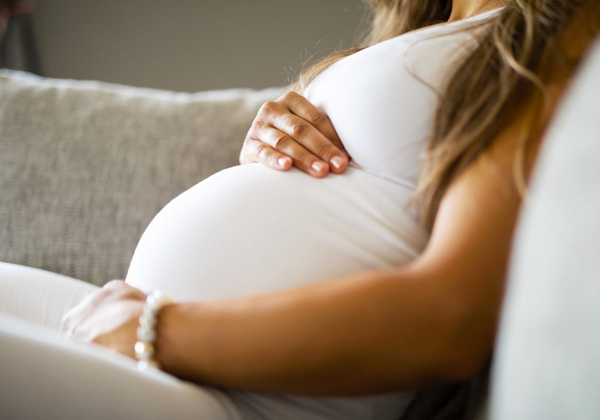If you’re on maternity leave or at home with small children, chances are you haven’t given your superannuation a second thought. Afterall the pressing business of keeping those kids happy, healthy, fed, watered and entertained is an all-consuming business.
At a time when family life is all go, go, go and you’re barely thinking beyond the next hour, planning for retirement is probably the furthest thing from your mind. And then: boom! You receive a message from your super provider to let you know that they’re cancelling the life insurance on your policy because you haven’t made any contributions in over a year.
I must confess the household finances are something I’ve always been delighted to hand-ball to my husband, just like he’s been happy to offload meal-planning, brushing our daughter’s hair and cleaning the bathroom, so my first instinct was to ignore the note. When I later mentioned it to him in passing over dinner and he explained the enormity of it I was horrified, and later angry. How did I not know that this would happen? Why hadn’t we made provision to contribute to my super while I took time off to care for our children? And then I wondered how many other women find themselves unwittingly in this situation?
A quick Google search of “women” and “superannuation” revealed I am certainly not alone. In fact, the inequality of the Australian super system is completely stacked against us, so much so that we’re missing out on some substantial sums of money.

WOMEN RETIRE WITH ONLY HALF THE SUPERANNUATION OF MEN
“If you’ve taken time out of paid work to care for children, it’s likely that you’re not getting paid any super.” Said Rachel Hamlen, Head of Customer Experience at FairVine, a superfund designed for Australian women.
She continued: “It’s part of the reason why women end up retiring with only half the superannuation savings of their partners. The system is not set up for the work pattern of most Australian women, in that, for the most part, women are still the primary carers of kids. This means they also take far more time out of the workforce than men, and often, they return to work part time so they can balance their care responsibilities, resulting in vastly reduced super contributions.”
WHAT DOES YOUR CAREER BREAK MEAN FOR YOUR SUPER?
Women who take career breaks and don’t contribute to their super will face two problems:
- They are not reaping the benefits of consistent contributions compounding over the life of their super
- Although they’re not making contributions, their fund will likely continue to charge fees, slowly eating into your balance.
Looking at the average super balance for parents, the obvious difference between male and female parents is stark. The biggest difference appears between the ages of 30-35 when women are most likely taking career breaks. That dip then adversely affects future compounding interest returns, ultimately resulting in a lower end balance.

SO, SORT YOUR SUPER NOW!
It hardly seems fair that women who take the lion’s share of unpaid work to act as carers, are hugely disadvantaged when it comes to maximising their super. There are some simple steps you can take to nurture your superannuation savings:
- Plan ahead of a career break to make sure you are able to contribute to your super. One of the reasons many women find their super stagnating is due to a lack of planning ahead, and it’s costing them up to $160,000! The consequences of missing out on so much extra money can be devasting, with women aged 55+ being Australia’s fastest-growing homeless demographic. The ability to be independent and afford a comfortable retirement is at risk when you leave you super alone during a career break.
- Contribute during your break. Consider contributing 9.5% of any paid leave payments into your super, or if possible, match your previous salary’s payments, if you can afford to.
- Spouse contributions. The higher earning partner can put cash into their partner’s super account. They’re able to get a $540 tax offset on the first $3,000 they contribute as well.
- Contribution splitting. The working partner gives the partner staying at home some of the super they earned during the year. This works well if you don’t have the money to make extra payments into super. Your partner is also able to split their concessional contributions (i.e. pre-tax contributions from your employer and/or salary sacrificing) with you.
So, in addition to all the other ways in which you’re preparing for your newborn – painting the nursery, attending antenatal classes and stocking up on nappies – make sure you take the time to sit down and review how you’ll address your super whilst on parental leave. The decisions you make now can ensure you don’t lose out on tens of thousands of superannuation dollars and can enjoy your well-deserved retirement.
FairVine is a new super fund that that makes all this easy. Designed especially for women, they rebate fees during parental leave and facilitate ways for you to make recommended contributions, so you continue to build your super and keep it out of the inactive category. They can help you contribute to your super during parental leave via FairRewards, where you get cashback into your super if you shop online from their portal. If you want to get this off your to-do list right now, it will take five minutes and your TFN. Visit the FairVine website.
